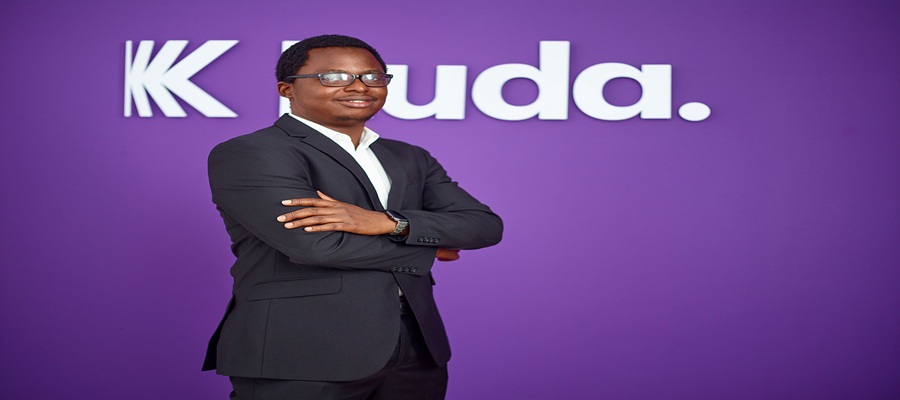E-Financial
Leatherback Moves to Make Global Transactions Fast, Secure

New “neo bank”, Leatherback, has announced that it is poised to disrupt the financial services sector with its one account, multiple currency solution that allows businesses and individuals to conduct global transactions easily, quickly and securely.

In a statement, the company’s Founder and CEO, Ibrahim Toyeeb, said the introduction of Leatherback to the global market is underpinned by a desire to democratise banking and provide opportunities for borderless global trade and commerce.
According to him, “It’s no secret that emerging markets are the principal drivers of global growth. Given this reality – and the fact that the COVID-19 pandemic has imposed numerous restrictions on travel and commerce – Leatherback was formed to simplify global trade for people and operations everywhere, allowing them to seamlessly move money from one continent to the next.
“In this respect, Leatherback provides a much-needed solution for exporters and importers, immigrant-owned businesses, international students, the migrant population in general, tourists and multi-nationals with foreign operations that require financial solutions, payments or foreign exchange.Leatherback is inspired by the leatherback sea turtle, a nomadic creature that roams the seas from the northern regions of the arctic, to as far south as the pacific, without self-imposed restrictions to hinder its movements.”
“Like its namesake, the fintech operation is built on the same principles. It offers multi-currency accounts with the option to exchange currency instantly across multiple countries, including the United Kingdom, Canada, India, Nigeria, Egypt, Uganda, Tanzania, Angola, South Africa, the UAE, Denmark, Ghana and Côte d’Ivoire. The organisation enables clients to create local and foreign accounts to give them the option to remit funds across 40 countries, while businesses can invoice and collect directly in over 13 currencies.
“Notably, Leatherback is fully regulated by the FCA in the UK, Fintrac in Canada, the Central Bank of Nigeria and other regulatory authorities in the 13 countries it is licenced in. “Ensuring our users operate in a secure space is non-negotiable. The multi-layered cybersecurity measures we have deployed are aimed at safeguarding their money and providing them with peace of mind, ”Toyeeb said.
He added, “At the core of Leatherback is the ability to break down payment barriers, promote business expansion, remove barriers to business growth, and build a global digital payments infrastructure that harnesses the rise of digitisation.While it may seem implausible that users can set up accounts, make currency conversions and global payments within minutes, Leatherback has done just that.
“A zero-balance start-up fee and highly competitive rates provide further compelling reasons to join the Leatherback fold.While Leatherback allows for ease of making and receiving payments around the world, it also integrates invoicing and payroll services, tax management services, and revenue management.”
Leatherback, he added, “is a game-changer in the industry. By using Leatherback’s networks, account holders can spend abroad in the local currencies from the comfort of their offices or homes, at competitive exchange rates.
“Through its collections application programming interface (API), clients can accept money globally – in-store or online – from more customers, in their preferred countries, and in small or large volumes. In addition, trade finance unlocks working capital for short- and long-term business goals, business continuity and disaster recovery.”
“With its deep understanding of local markets and global finance, Leatherback’s main objective is to remove borders from transacting, so that people and businesses are encouraged to be ambitious and provide their services freely, making and collecting payments with ease around the world. “We believe in side-stepping convention to continuously find better ways to make things happen,” concludes Toyeeb.
E-Financial
FBNQuest Merchant Bank Rebrands as Quest Merchant Bank

FBNQuest Merchant Bank Limited has completed a change of name and will now operate as Quest Merchant Bank Limited, following the receipt of all required corporate and regulatory approvals.

The name change does not affect the Bank’s legal or going-concern status, management, or the nature of its business. Quest Merchant Bank Limited remains a duly licensed merchant bank, regulated by the Central Bank of Nigeria (CBN) and the Securities and Exchange Commission (SEC), and continues to deliver its full suite of merchant banking, advisory, and capital markets services to clients.
Commenting on the development, the Ag. Managing Director/CEO, Afolabi Olorode, stated: “This name change represents a pivotal milestone in the rich history of the Bank and a deliberate strategic repositioning that reflects our resilience, strong track record, and long-term growth ambitions. While our name has evolved, our commitment to our clients, stakeholders, and regulators remains unwavering.”
As part of the transition, the Bank is updating its branding, communications, and digital platforms to reflect the new name. During this period, some legacy references may remain visible across select touchpoints as updates are progressively completed.
All existing contracts, client relationships, and obligations of the Bank remain valid, binding, and fully enforceable following the name change.
E-Financial
UBA launches instant digital platform for seamless account opening across Africa, diaspora

United Bank for Africa (UBA) Plc, Africa’s leading financial institution, on Tuesday unveiled a groundbreaking instant account opening platform, revolutionising banking access for millions across the continent and diaspora communities worldwide.

UBA
The fully digital innovation, accessible at ubagroup.com, empowers prospective customers to complete account onboarding online in minutes, bypassing paperwork, branch visits, and lengthy processes that have long hindered financial inclusion. Supporting Naira and Diaspora accounts with multi-language options, the platform operates seamlessly on computers, tablets, and smartphones, catering to UBA’s diverse pan-African footprint spanning 20 countries, the UK, US, France, and UAE.
Shamsideen Fashola, Group Head of Retail and Digital Banking, described the launch as a pivotal step in democratising finance. “At UBA, we are committed to redefining the customer experience through innovation and simplicity,” Fashola said. “This fully digital solution underscores our belief that banking should be accessible, secure, and truly borderless.”
The seven-step process is intuitive: customers select “Open a Savings Account,” input their Bank Verification Number (BVN), undergo facial verification, confirm an OTP, update details, upload documents, add a digital signature, and receive an instant account number. This bridges traditional banking rigour with fintech speed, incorporating digital KYC while upholding stringent security.
Built with compliance at its core, the platform adheres to Nigeria’s Data Protection Act (NDPA) and Europe’s GDPR, safeguarding user privacy amid cross-border operations. Unlike conventional methods requiring physical biometrics, it enables immediate enrolment in UBA’s digital channels, blending convenience with regulatory depth.
Alero Ladipo, Group Head of Brand, Marketing, and Corporate Communications, highlighted customer-centric design. “Today’s customers expect speed, convenience, and compliance without compromise,” Ladipo stated. “We have blended industry-leading digital onboarding with robust standards for a seamless experience matching global best practices.”
The move reinforces UBA’s dominance in technology-driven inclusion, serving over 50 million customers with 30,000 employees and pioneering retail, commercial, and institutional services. Analysts view it as a strategic edge over fintech rivals, accelerating Africa’s digital economy amid rising diaspora remittances and intra-continental trade.
As Nigeria and Africa push financial digitisation, UBA’s platform positions the bank to capture untapped markets, fostering economic growth through barrier-free banking
E-Financial
Kuda MFB Secures National Microfinance Banking Licence, Sets Stage for Nationwide Growth

Kuda Microfinance Bank (Kuda MFB) has received a license from the Central Bank of Nigeria (CBN) to operate as a National Microfinance Bank, which means that it can now have a physical presence across Nigeria.

Musty Mustapha, MD/CEO of Kuda MFB
With the Unit Microfinance Bank licence it held until December 2025, Kuda MFB’s physical operations were limited to a specific location. The national licence removes those geographic restrictions, allowing the bank to open customer experience centres in multiple parts of the country. It also regularises Kuda MFB’s licensing status in line with the Central Bank’s framework for microfinance banks.
According to the bank, the national licence is about regulatory alignment and operational flexibility rather than a shift away from its digital-first model, so it will continue to lead with digital banking services, offering Nigerians the convenience of making transfers and payments, saving, and accessing instant credit through the Kuda app.
Musty Mustapha, MD/CEO of Kuda MFB, said, “Securing a national microfinance banking licence is an important step for us as a regulated institution. It strengthens our relationship with the Central Bank and affirms our commitment to operating at the highest standards of compliance as we scale. While we remain digital at our core, this licence gives us the flexibility to create more physical touchpoints where customers want in-person support or engagement, allowing us to serve Nigerians across the country in whichever ways are most convenient for them.”
Subject to regulatory approval, Kuda MFB plans to open more experience centres designed for customer support and community engagement, in the style of its existing experience centre in Yaba, Lagos, where customers and the general public can speak directly with the Kuda team to get help and learn about the microfinance bank’s products and services.
Kuda MFB’s national licence does not change its existing product offerings or transaction capabilities, but it provides the regulatory backing for a nationwide presence.

 Telecom1 day ago
Telecom1 day agoPolice Bust ₦7.7bn Telecom Hack Gang, Seize 400 Laptops in Massive Fraud Swoop

 E-Financial2 days ago
E-Financial2 days agoPayPal Goes Live in Nigeria through Paga

 Broadcasting2 days ago
Broadcasting2 days agoNITDA, NBC Explore Strategic Collaboration on Digital Transformation, Media Regulation

 General News1 day ago
General News1 day agoNaira Smashes Through ₦1,400 Barrier in Official FX Rally

 General News1 day ago
General News1 day agoNCC Slaps ₦250,000 Fee on Trial Licences to Spur Telecom Innovation

 General News2 days ago
General News2 days agoFacebook Powers Connection, Creativity at African Creators Summit 2026

 E-Business2 days ago
E-Business2 days agoGold Hits Record $5,110/Ounce Amid Trump Tariff Threats, Geopolitical Fears

 Telecom2 days ago
Telecom2 days agoTikTok, Instagram Blamed in US Youth Suicide Lawsuit















